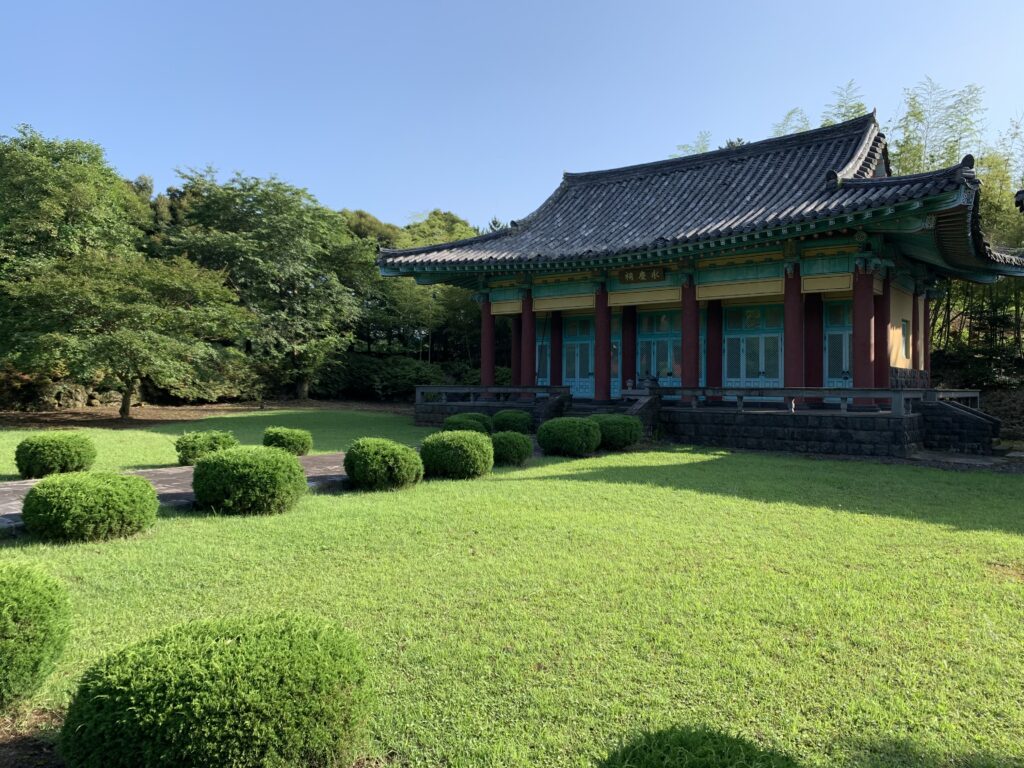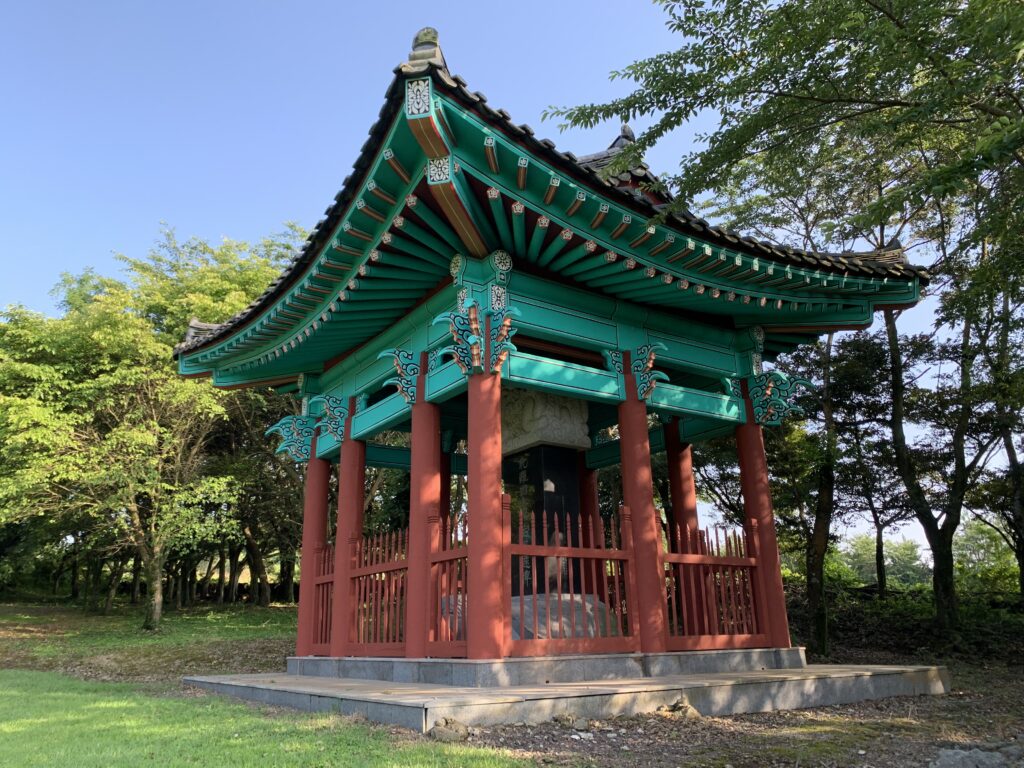The myth of the founding of the state/kingdom of Tamna comes from several sources; it appears in both oral tradition and written records dating back as far as the 15th century, but is likely much older than that. The myth is often called the Myth of the Three Clans (삼성신화 : Samseong Sinhwa). Samseong literally means three family names and refers to the divine brothers called Eulla, who have the last names Ko, Yang and Bu. These clans are still among the most populous on the island, and clan representatives continue to celebrate their ancestry by performing rituals twice a year at Samseonghyeol, where the legendary men are said to have ’emerged from the ground’ in the far distant past.
This version of the myth of the three ancestors of the people of Jeju Island comes from the Geography section of the History of Goryeo (高麗史 : 고려사 지리지 : Goryeosa Jiriji), written in 1450 after the fall of the Kingdom of Goryeo (918~1392) by a group of scholars under the orders of King Sejong of the Joseon dynasty. It appears in the section on Tamna Hyeon (耽羅縣 : 탐라현) – part of Volume 11, Number 2: Jeolla Province (지리 제11권 지리 2 전라도). Tamna Hyeon is the name given to Jeju when it was an administrative district (hyeon) within the province of Jeolla.
Images of the original along with a text version and a translation into modern Korean can be accessed at the 국사편찬위원회 National Institute of Korean History‘s website. The orginal text below is from that site. The Jeju Provincial Government also has a translation into Korean by Hyun Yong-joon (현용준) on their website. Both translations into modern Korean along with the original text were used to make the following English translation.
The list of characters and their meaning is taken from the incredibly useful Korean hanja website by Dan Bravender.

Myth of the Three Clans
耽羅縣在全羅道南海中. 其古記云, “太初無人物, 三神人, 從地聳出【其主山北麓, 有穴曰毛興, 是其地也.】, 長曰良乙那, 次曰高乙那, 三曰夫乙那. 三人遊獵荒僻, 皮衣肉食.
Tamna Hyeon is in the sea to the south of South Jeolla Province. According to old records, “At first there were no people. Three divine men emerged from the ground. (There are holes in the ground called Moheunghyeol on the northern slope of the mountain that dominates the island. That is where these demigods emerged.) The eldest brother was called Yang Eulla. Ko Eulla was the name of the second and the third was called Bu Eulla. The three men hunted in the remote wild areas. They ate meat and their clothing was made of animal skins.
一日見紫泥封藏木函, 浮至于東海濱, 就而開之, 函內又有石函, 有一紅帶紫衣使者, 隨來. 開石函, 出現靑衣處女三, 及諸駒犢五穀種.
One day, they saw a wooden box sealed with purple clay float in to the eastern coast of the island. They went and opened it. Inside was another box, this one made of stone. There was also a messenger wearing purple clothing and a red belt. He opened the stone chest, which contained three young women, many horses and cows, and the seeds of five grain crops.
乃曰, ‘我是日本國使也. 吾王生此三女云, 「西海中嶽, 降神子三人, 將欲開國, 而無配匹.」 於是, 命臣侍三女, 以來爾. 宜作配, 以成大業’. 使者忽乘雲而去.
The man said “I am an envoy from the nation of Japan. Our king had three daughters. He said that three divine men who were born on a lofty mountain in the sea to the west wish to found a great nation but have no wives. He commanded me to accompany his daughters here. Please accept them as suitable wives and accomplish great deeds.” Then the messenger flew away on a cloud.
三人, 以年次, 分娶之, 就泉甘土肥處, 射矢卜地, 良乙那所居, 曰第一都, 高乙那所居, 曰第二都, 夫乙那所居, 曰第三都. 始播五穀, 且牧駒犢, 日就富庶.
The three men married the women by order of age. They went to a place with a source of sweet water and fertile soil and shot arrows to let fate determine where each of them would live. The place where Yang Eulla settled was called First Village. Ko Eulla’s homestead was known as Second Village, and Bu Eulla’s was known as Third Village. They planted the seeds of the grain crops and began raising horses and cattle. As time went by they became more and more prosperous and had many descendants.


1 thought on “Myth of the Three Clans in the “History of Goryeo””